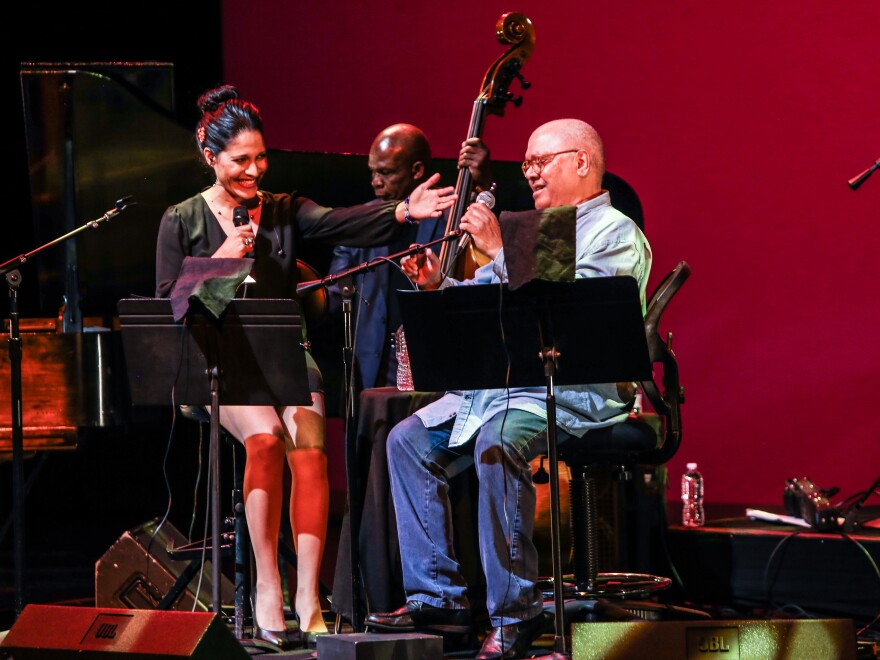His fans throughout Latin America knew him simply as Pablito. Known for such hits as Yolanda and Yo Me Quedo, Pablo Milanés helped define Nueva Trova, the genre of music that emerged in Cuba in the 1970s.
Milanés died in Madrid. He moved to Spain several years ago to receive treatment for cancer. The Latin Grammy winner's death was announced on his Facebook page:
"With great pain and sadness, we regret to report that Maestro Pablo Milanés has passed away this early morning on November 22 in Madrid. We deeply appreciate all the shows of love and support, to all his family and friends, in this very difficult time. May he rest in the love and peace he always transcended. He will remain forever in our memory."
In a 2019 interview with his daughter Haydée Milanés, NPR's Alt.Latino described Pablo as "one of the most revered singer-songwriters to emerge from a heady period when politics, poetry and acoustic guitars flowed from Cuba in the form of nueva trova, or new song."

Pablo Milanés had a complicated relationship with the Cuban government over the decades. He supported Fidel Castro and the Cuban Revolution but he was also a free thinker. In the mid-1960s, he was sent to the Castro regime's forced labor camps known as Military Units of Production Aid (UMAP) where, according to El Pais, "priests, homosexuals and other 'antisocial elements' were interned under the pretext of compulsory military service."
"It was a concentration camp and I spent a year and a half of my life there," Milanés told The Guardian in 1999. "It wasn't that there was any physical punishment, it was the fact you were shut away, with hard physical labor, cutting sugar cane dawn to dusk." He said he wasn't exactly sure why he was sent there. "I was living a bohemian lifestyle. . . who knows, the whole attitude of youth at the time."
Cuban leader Miguel Diaz-Canel Bermudez tweeted that Milanés and his songs are an "inseparable voice of the soundtrack of our generation."
Earlier this year, Milanes announced that he had signed the Cuban Civil Society Manifesto calling for social and economic changes to the country. In a Facebook post, he urged others to read the document and to make way for new ways of thinking, "which claim new laws, new freedoms, new active participation within today's society, which would lead us to a dialogue of peace."
Among the many tributes from fellow artists, Peruvian singer Tania Libertad wrote, "A great composer, wonderful singer and extraordinary friend...We will miss you Dear Pablo. Have a good trip. I will hug you and sing to you always."
Copyright 2022 NPR. To see more, visit https://www.npr.org.



